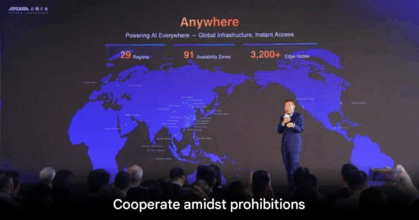

Apple Intelligence Set to Finally Arrive in China with iOS 26.2 and 26.3 Updates
AI rollout expected to boost iPhone sales and reshape Apple’s China strategy
In 2024, Apple announced Apple Intelligence, a suite of AI-powered features designed for iPhone, but the technology remained incomplete, particularly the revamped Siri, and was notably absent in China — one of Apple’s largest markets. Now, according to Bloomberg’s Mark Gurman in the Power On newsletter, the next two major iOS updates, iOS 26.2 and iOS 26.3, will mark a pivotal moment for China, as they are expected to officially introduce Apple Intelligence to the region. In preparation, iOS 26 has already added support for Simplified Chinese and Mandarin.
Chinese users of the iPhone 16 have so far been unable to access Apple Intelligence, despite it being the most heavily promoted feature of the device. Meanwhile, the iPhone 17, launched this month, placed less emphasis on AI but hinted at its critical role in future products. The absence of Apple Intelligence contributed to weak sales of iPhone 16 in China, forcing Apple to implement price cuts to regain momentum. Another challenge is the iPhone Air, which remains unavailable in China due to its reliance on e-SIM technology.
If the upcoming iOS 26 updates deliver Apple Intelligence to China as expected, Apple will finally be able to offer the flagship feature it promised with the previous generation. The delay has not been entirely Apple’s fault — Chinese government regulations make it extremely difficult to deploy AI features without strict oversight. To comply, Apple is partnering with local companies to manage AI tools on iPhones, ensuring they adhere to state censorship requirements.

Despite missing Apple Intelligence for two consecutive generations, the iPhone 17 has enjoyed strong demand in China and globally. Pre-orders shattered records on platforms like JD.com on launch day, and long lines formed outside Apple Stores in Beijing before dawn, reflecting Chinese consumers’ appetite for innovation despite fierce competition from Huawei.
However, integrating AI into China’s ecosystem is a complex process. Apple is collaborating with Baidu for large language model capabilities and Alibaba for content moderation to ensure compliance with local regulations. As a result, the version of Apple Intelligence in China will be heavily censored to avoid prohibited content. Analysts predict that the launch could boost iPhone sales in China by up to 11% in the second half of 2025.
Ultimately, this moves underscores Apple’s broader strategy to adapt to local regulations while maintaining its foothold in a market that generates significant revenue. Although it involves compromising on privacy and freedom of information, bringing Apple Intelligence to China is a crucial step that could strengthen the position of the iPhone 17 and future models across the Asian market.






